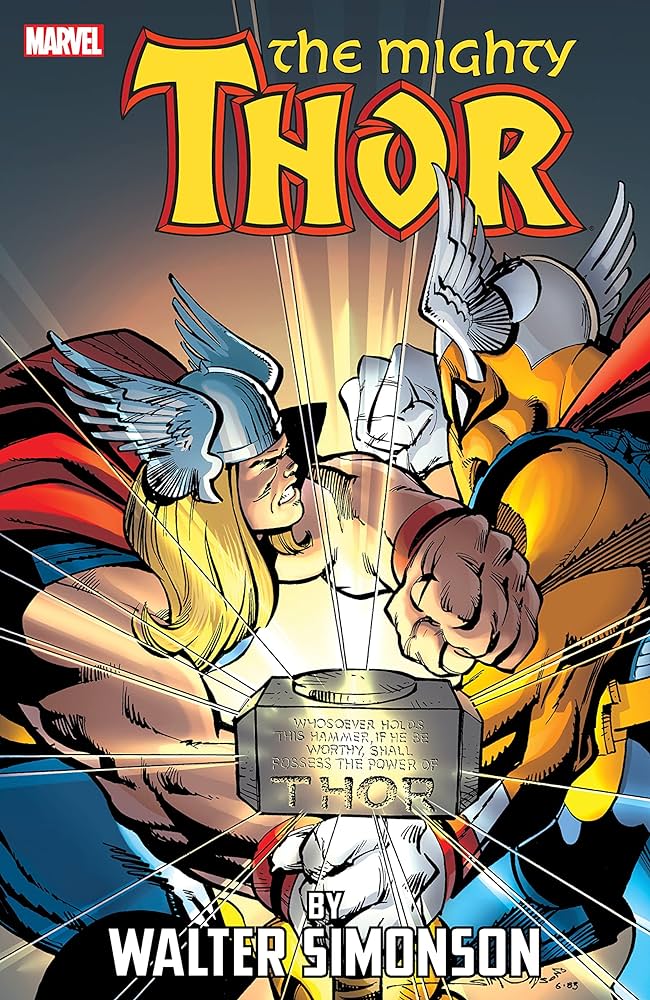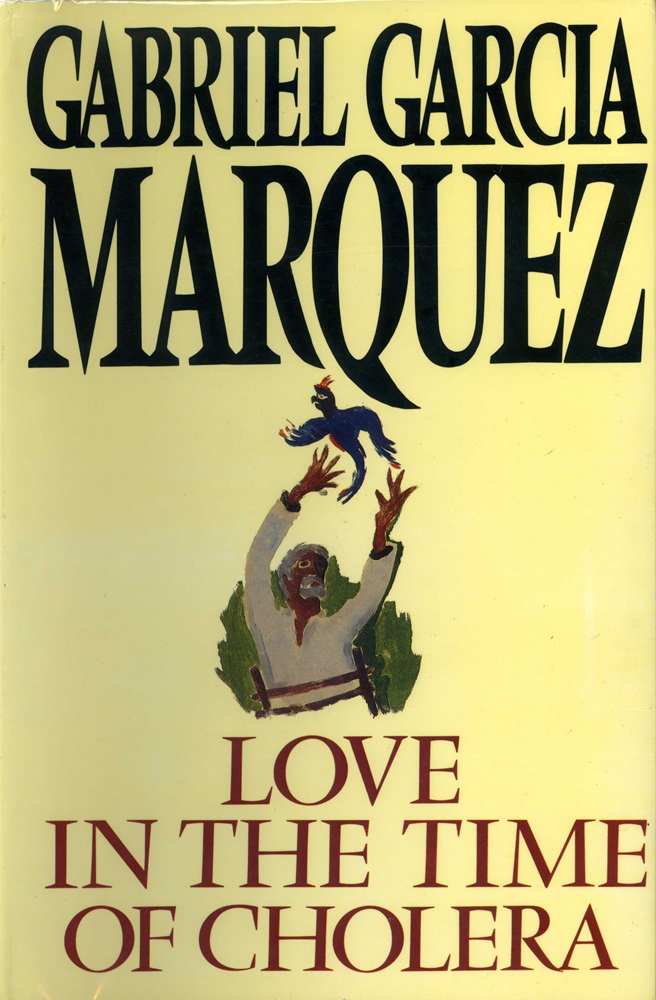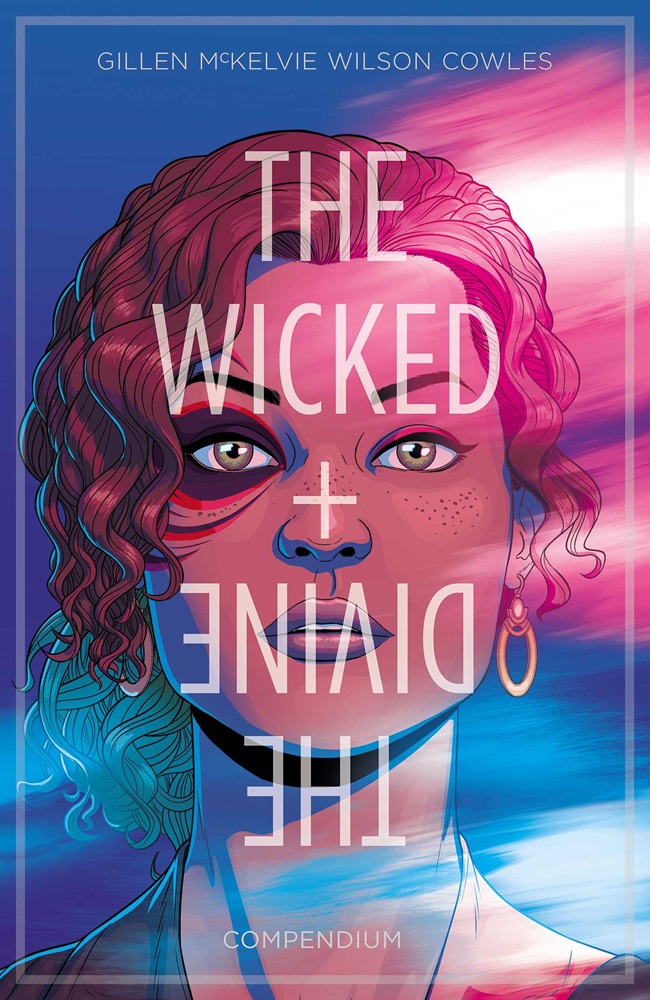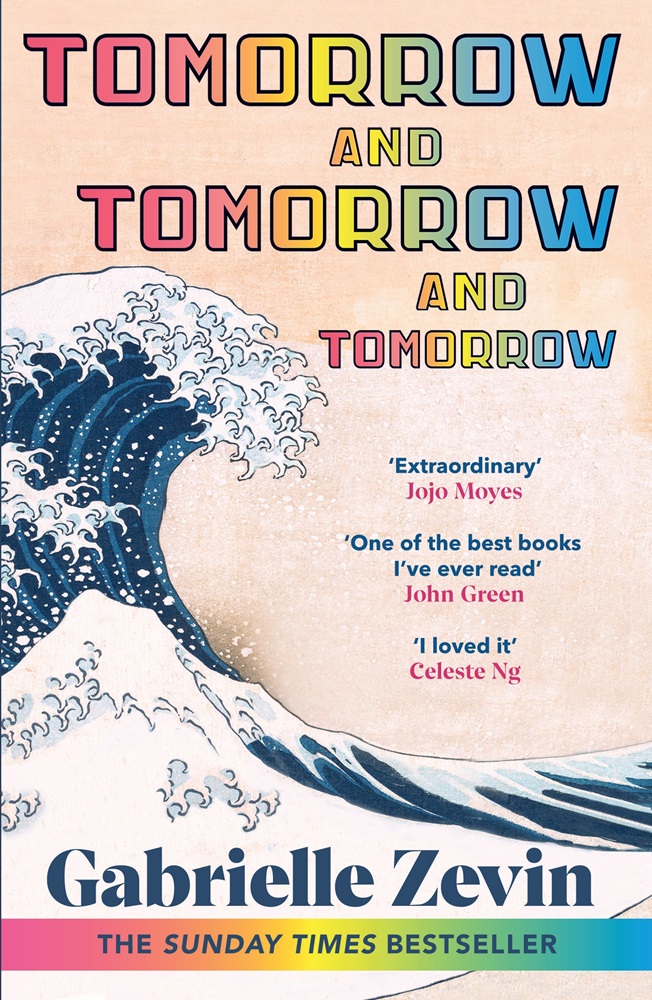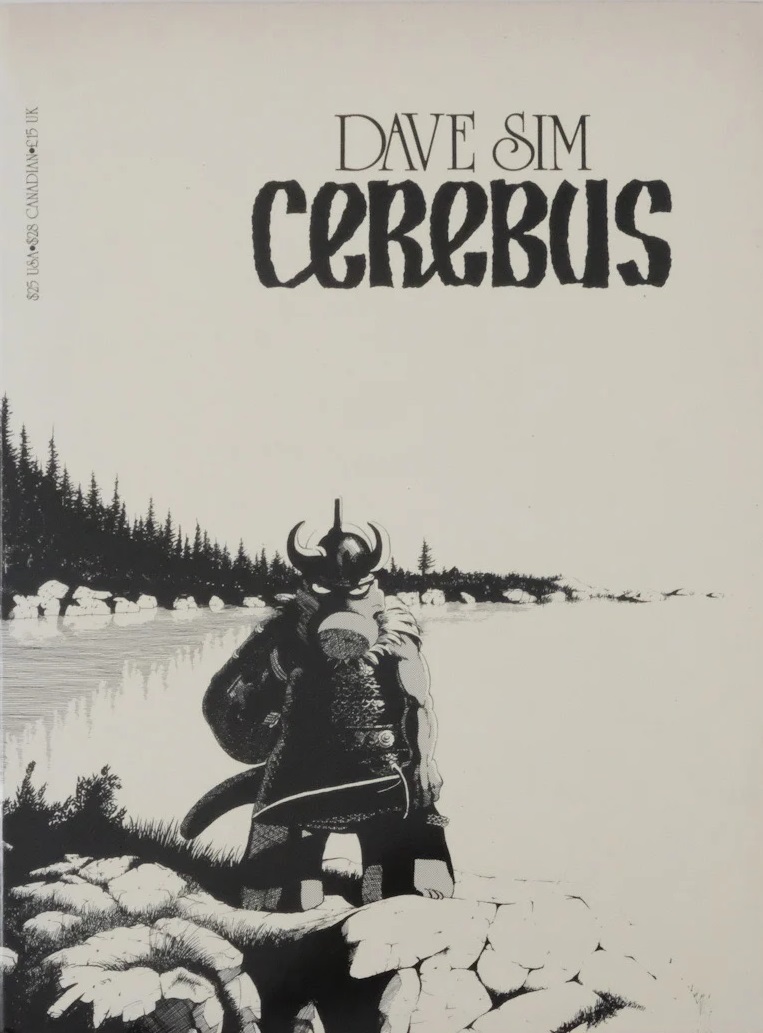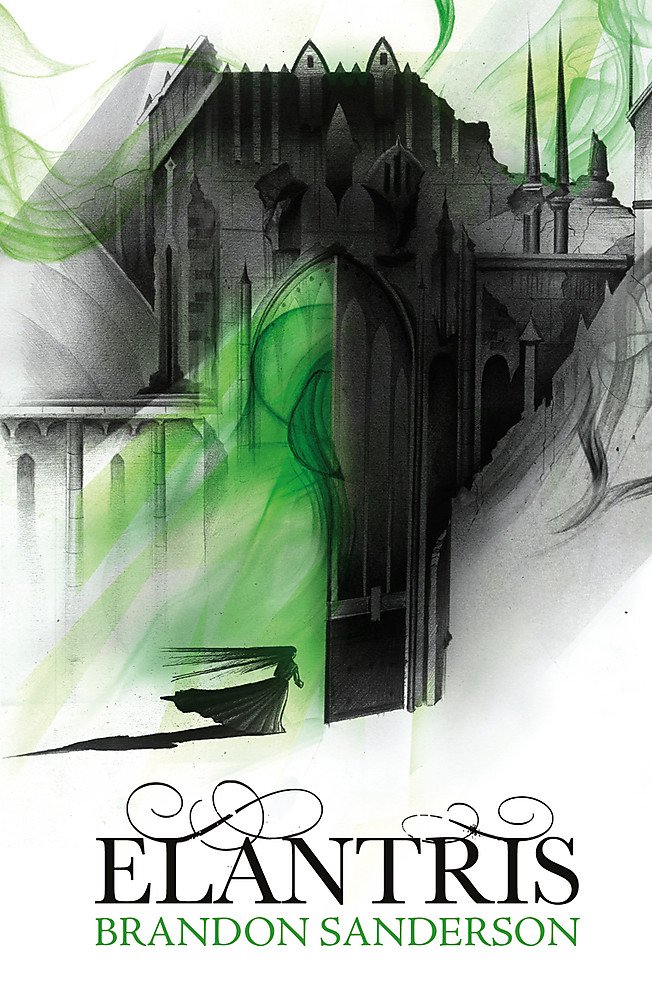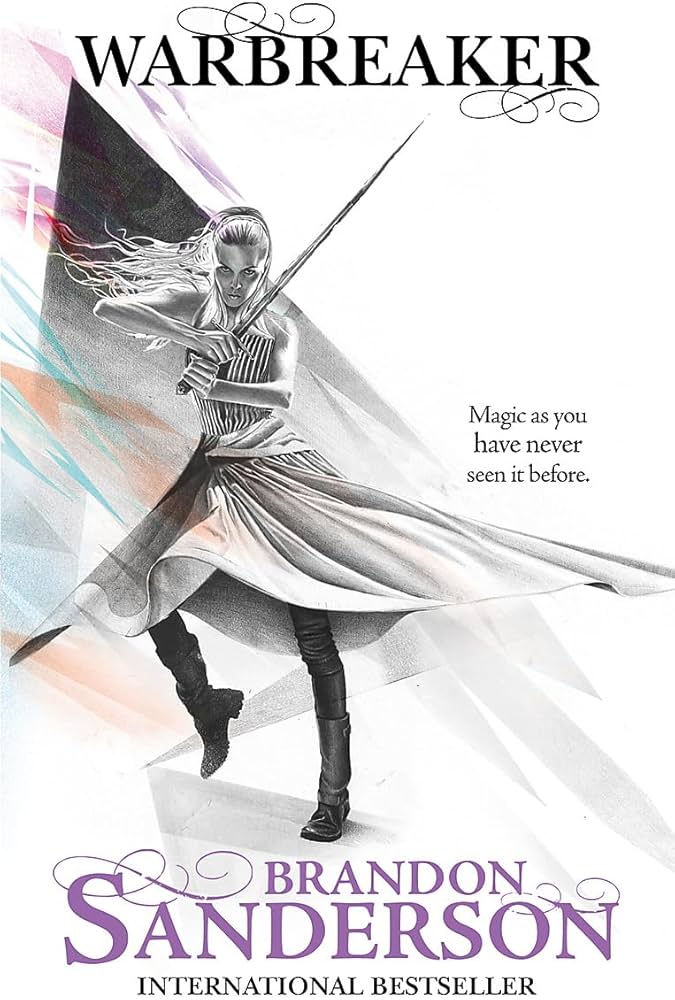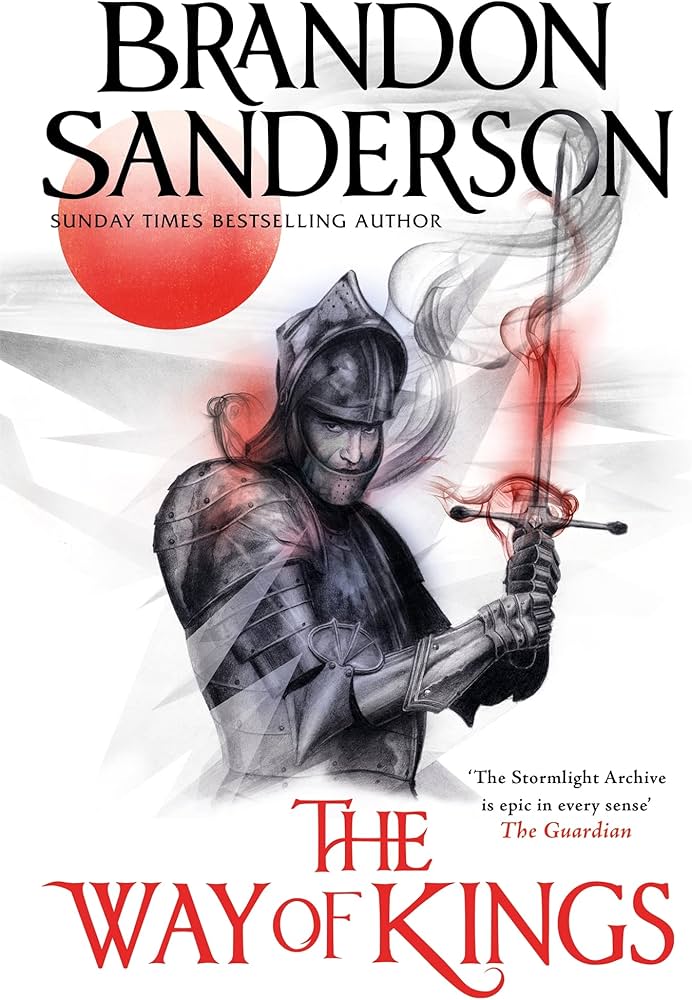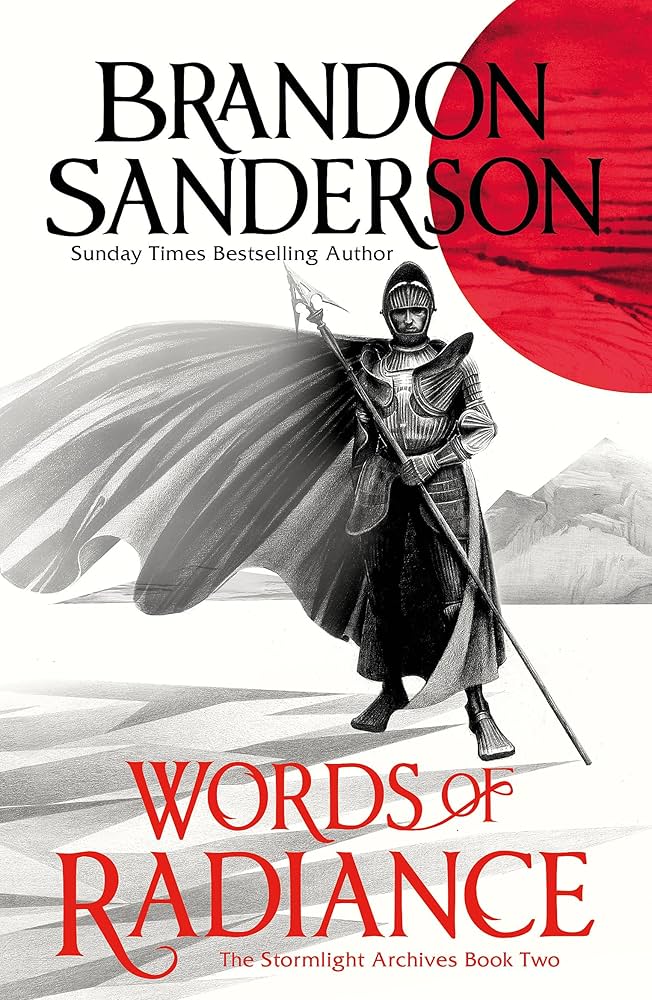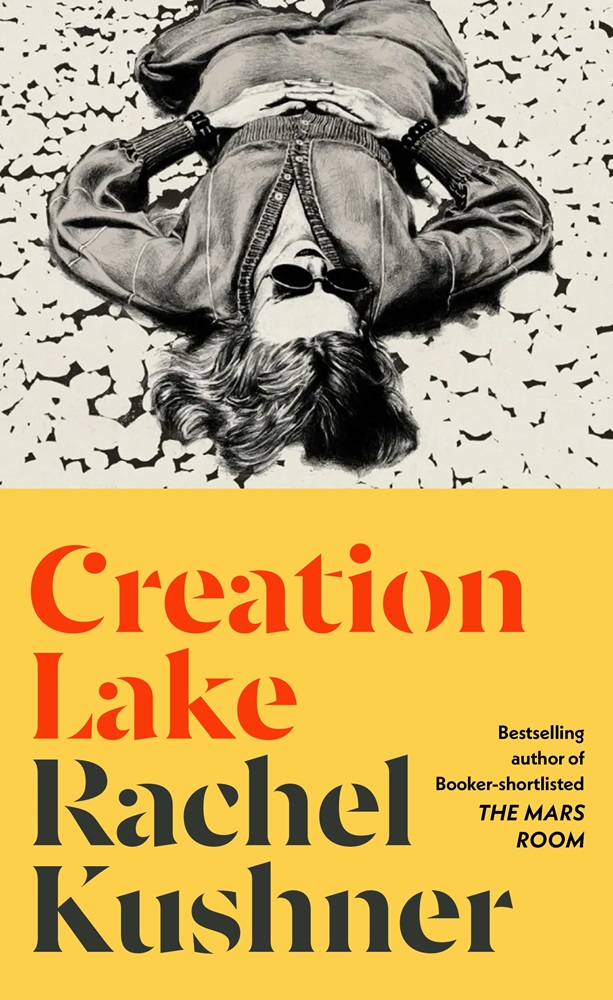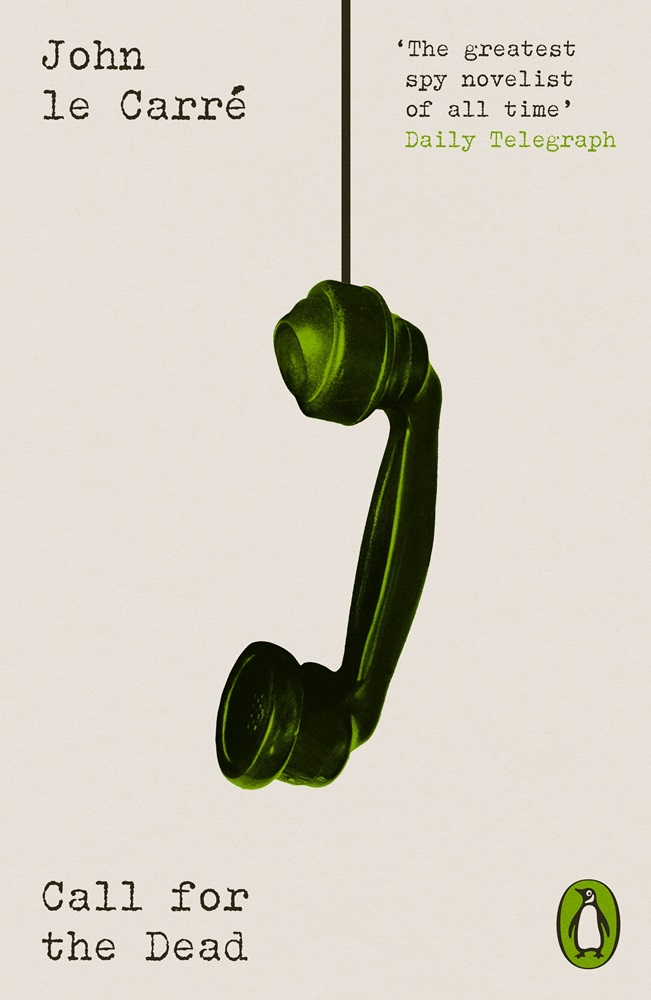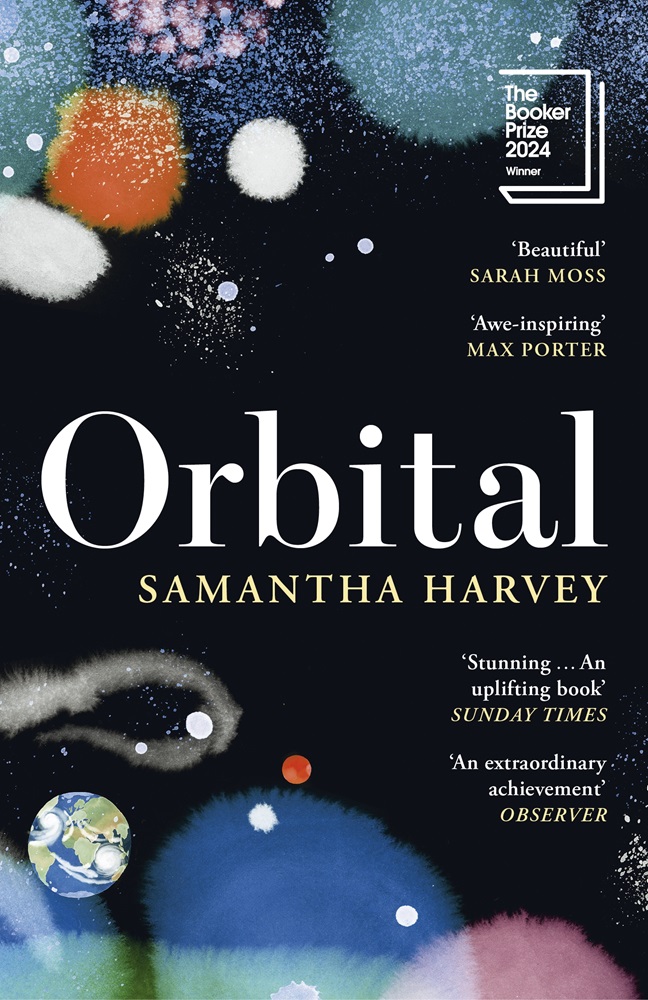Books 2024
The Mighty Thor Vol.1 (1983)
Walter Simonson
★★★★★By the bristling beard of Odin! An incredible series which revels in being every ounce a timeless tale of epic Norse scale: gods, demons, giants, dragons, swords, sorcery, and humanity. The panels flow with incredible movement thanks to Simonson's inks, and his language grows ever mightier the more he finds his momentum. I love love love the gigantic onomatopoeia of collisions and thundering—THRAAKKT, BARROOOOM, FFSHHAMMM—all as iconic as Wolverine's SNIKT, and as much a part of the action as the characters are. It manages to be laugh out loud funny despite the high drama, a cameo by a famed DC character being the highlight. In the intro Simonson writes that the key thing he learnt from the classic Stan Lee and Jack Kirby books was that "if you kept a straight face, you could do anything" and he holds that line here brilliantly. The only criticism comes with the depiction of the Norse women, most all of whom are stuck in the 1980s Marvel gaze.
Love in the Time of Cholera (1985)
Gabriel Garcia Marquez
★★★☆From Thor to Marquez is an unusual transition, but, much like Thor, Marquez's tale it told in wondrous fashion. The loving craft of his writing is utterly absorbing and you relish every small detail he provides as he sets the scene of the story. I loved every minute of it...until he changed focus and moved onto a character who becomes increasingly unlikeable over the course of the novel. By the conclusion I was so repelled that I found the entire book coloured, including that wonderful opening, which was a great shame as the writing itself remained stellar.
The Wicked + the Divine Vol.1-9 (2014-2019)
Kieron Gillen / Jamie McKelvie
★★★★I started reading this in 2014 in monthly issues, drifting away for one reason or another. After a revival of interest due to Gillan and McKelvie runing a 'covers' Kickstarter, I read the entire series. It's an tour de force of creator-owned comics and deserves the recognition it gets. My only quibble is I do sometimes struggle to follow Gillen's writing, occasionally feeling like I'm missing some crucial step in the panelling sequence, but if you just go with it it tends to all work out. And, like Phonogram, there are definitely a billion pop-culture references that I miss. McKelvie's art is superb throughout, particularly his faces and movement. Reputedly this creation of this epic left both creators wiped out, and you can understand why: it's a labour of love that never drops the high standards it sets.
Tomorrow, and Tomorrow, and Tomorrow (2022)
Gabrielle Zevin
★★★☆A compelling account of a relationship that revolves around video games and the creation thereof. The two main characters bounce off each other over the course of half-a-life, sometimes as best friends, sometimes not. The book starts strong, and finishes strong, but does get a bit lost in the midsection. There are some wonderful sequences, one in particular about death, that rightly earns the work a lot of praise.
The Book of Love (2024)
Kelly Link
★★★★★My favourite read of 2024. A spellbinding tale of love and loss and magic and all the things that make life joyous and impossible. I wanted to give this to everyone who reads to revel in.
Cerebus (1977-1981)
Dave Sim
★★★Early in 2024, Tom Ewing started publishing his notes on a re-read of the full Cerebus the Aardvark comic—all 300 issues. I had read Cerebus month-by-month when it was originally published, following it all the way to the Women storyline, at which point Sim's hostile misogyny became too much to bear. Reading Ewing's excellent notes I became intrigued to read the early books again, which I owned in the original 'phonebook' format. This volume captures the first twenty-five issue, and it is fascinating to read if for no reason than to watch an artist develop with remarkable speed. Sim starts as a very basic draftsperson and very quickly becomes someone who can capture nuance and light with unique skill. The story is nonsensical for the most part—why an aardvark?—but there is something there to keep you reading despite it being, as Ewing puts it, mostly a chore. And there's no sign here of what Sim devolves into, thankfully. I haven't continued with book two (High Society), where Sim really hits his stride and, importantly, the inimitable Gerhard joins the creative team, but plan to.
Elantris (2005)
Brandon Sanderson
★★★☆Brandon Sanderson's relentless and highly successful self-promotion cracked me this year and I decided to embark on a sequential read of his novels. In years past I'd read the first Mistborn book (loved the metal-magic) and the first two of the Stormlight saga. The Shattered Plains from the latter in particular had stuck in my mind for years. Elantris is his very first book and it shows, but other than some clunky language (no-one can chew their cheek as much as he suggests without having no cheek left) this was an entertaining and solid read. There is a lot of lore already, and less of the minutiae that sometimes bogs down the later books. His themes of redemption, nobility, honour, and rising from the ashes are already present even in this first book and it's worth the read.
Warbreaker (2009)
Brandon Sanderson
★★This was once Sanderson's favourite of his novels, and he once (still?) considered it his best written. I beg to differ. I found the book tiresome and plodding, not at all romantic (unlike Sanderson), and with a surprisingly ill-thought out colour-based magic system. The only saving grace was an appearance by a character that later appears in the Stormlight books. As I started it I realised I'd abandoned it several times in the past, but ploughed through it this time and was glad when it was all over.
The Way of Kings (2010)
Brandon Sanderson
★★★★☆Now we're getting somewhere. As I started this memories of my first read flooded back. The opening sequence of a banquet where all hell breaks loose is terrific as a hook, as is the introduction of Shallan's more sedate educational story. Kal is a character for the ages, his journey always fascinating. The shardblades and armour are brilliant and very evocative. Sanderson is famous for his worldbuilding, sometimes to the stories detriment (I don't need to read that much detail about the plants growing in the rocks) but more often it is justified in the way it grounds the epic story. The Shattered Plains and Kaladin's journey through them is really something special. Shallan's story is less successful, often feeling artificially delayed in order to get Kal's progressed. His writing is vastly improved from those first two books—but of course he had written Mistborn in between, so his writing chops were well established. Just classic epic fantasy.
Words of Radiance (2014)
Brandon Sanderson
★★★★Almost as strong as TWoK, only faltering toward the end. Still another epic tale, far too many words, but most of them well spent. Again it is Kal's story that compels the read as questions of honour and responsibility fight with opportunity and greed. The squandered armies on the Shattered Plains, hunting for riches rather than victory, are so well captured, as are the enemy forces and the ongoing mystery of the assassin in white. It is a lot of reading though, both these books split into two volumes, and by the end of this one I felt defeated. Facing another 4000 words in Oathbringer and Rhythm of War was too much, particularly as I felt the story almost concluded here, before a tacked on epilogue that didn't grab me or make me want to read more. If anything it deflated a lot of the expectation and good will by making some of the epic power a bit too common. Once everyone is a superhero, is anyone?
Creation Lake (2024)
Rachel Kushner
★★★I loved The Flamethrowers, abandoned The Mars Room, and Creation Lake sits somewhere in between. It's interesting, the lead character unusual, and the neanderthal background intriguing. But I never felt it mattered terribly much, or that it made any particular point. Perhaps that plans are only ever that? Quite good but not very good, and a surprising Booker finalist.
Call for the Dead (1961)
John le Carré
★★★★I started reading a random le Carré at a holiday house (because there is always a le Carré at a holiday house) and, after my earlier Sanderson attempt, decided to read the Smiley books from start to finish. I've read several, but never felt I quite grasped the detail and complexity of character for which the books and character are celebrated. Call for the Dead is the first Smiley novel, and it's a cracker. 'Cracker' isn't quite right for le Carré though, as he rarely writes with excitement, it's more steady and scholarly, much like Smiley himself. It's a slim volume with nary a word wasted—a lesson for Sanderson perhaps—and the story unfolds like reverse origami. Small touches abound, a description of a room or backstory on a gentlemen's club, and Smiley is an amazing choice for hero: a rotund, half-blind, withdrawn bureaucrat-type (the final lines brilliantly capture this) who spends more time thinking than doing, but that thinking is always fascinating as you try and keep up with his insights. The only weakness here might be a tendency to exposition, which, despite being appreciated by a confused reader, may have been better left unsaid. But I'm not a mystery novel reader, so perhaps this is the norm? Subsequent books in the series will hopefully answer this question.
Orbital (2023)
Samantha Harvey
★★★★★A wonderful, philosophical, questioning, curious, loving reflection on earth and life upon it, from the perspective of space. Tonally perfect, exquisitely written, and precisely as long as it needs to be (which is not long). If not for The Book of Love it would be my book of the year (and is deservedly the Booker winner).
